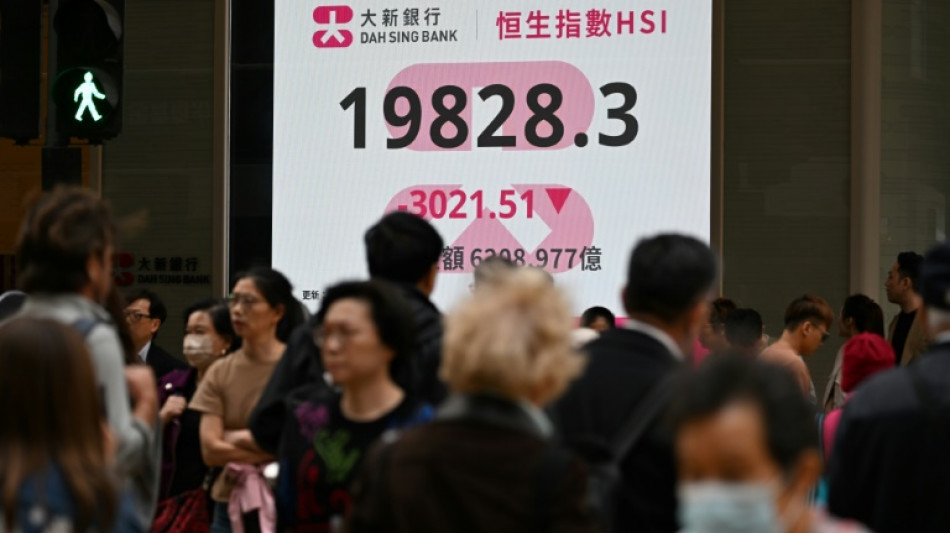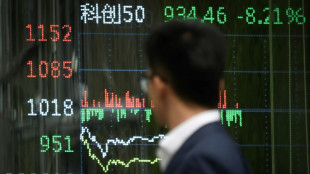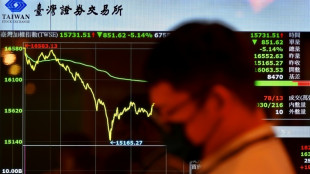

'Everyone is losing money': Hong Kong investors rattled by market rout
Hong Kong small-time investors were left reeling on Monday as US President Donald Trump's punishing tariffs and Beijing's retaliation saw the city's stock market suffer its worst day in almost three decades.
The benchmark Hang Seng Index fell by 13.2 percent -- its biggest drop since 1997 during the Asian financial crisis -- as a wider selloff played out across in Asian markets also spurred by China's retaliatory levies.
At a securities brokerage in Hong Kong's finance district, where more than a dozen elderly investors stared at numbers flashing red on computer screens, the mood was grim.
A woman in her nineties surnamed Tam said she "hated" Trump.
"He cost me HK$200,000 ($25,700)," she said.
"He's nonsensical, he says one thing and changes his mind a few minutes later... How can someone in such a lofty position act like that?"
None of the Hang Seng Index's 83 constituent stocks escaped losses on Monday.
Among the biggest losers were Lenovo Group, which plunged 23 percent, and Alibaba Group, down 18 percent.
"(Trump) won't let it go, he's making a mess," said another retiree surnamed Lee.
"Everyone around me is losing money."
The Chinese finance hub resumed trading on Monday after a three-day break, which worsened the drawdown, according to Stanley Chik, head of research at Bright Smart Securities.
"For Hong Kong equities, it is rare to see across-the-board losses to this extent," Chik told AFP, though he said they were on par with how US markets reacted.
Hong Kong's stock market had outperformed the United States since Trump took office, but Monday's rout wiped out HSI gains from the first quarter of this year.
Investors in the city have taken a wait-and-see approach for weeks as Trump finalised his trade policies, Chik said, adding that the mood was not yet one of "despair".
Hong Kong tops the world in retail investor participation, with one 2023 survey showing that 48 percent of the respondents held or traded stocks in the preceding year.
A 35-year-old man surnamed Tsang said his long-term investments lost around $12,900 on Monday, but he would not consider selling yet.
"I didn't expect it to get so bad," said Tsang, a Hong Kong commercial bank employee.
China A-shares may be more resilient, he added.
"In this sort of fight (between China and the United States), it's hard to say who will suffer more."
Lawyer Ray Chan, 30, was among those left unscathed on Monday, as he sold all his Hong Kong and US shareholdings two weeks ago, netting gains in the seven figures.
"We're clearly entering a bear market but I'm prepared," Chan told AFP.
"When (Trump) said there would be tariffs on April 2, I could guess where things were headed."
It will take "at least a year" before he returns to the market, Chan said.
P.Mueller--MP



